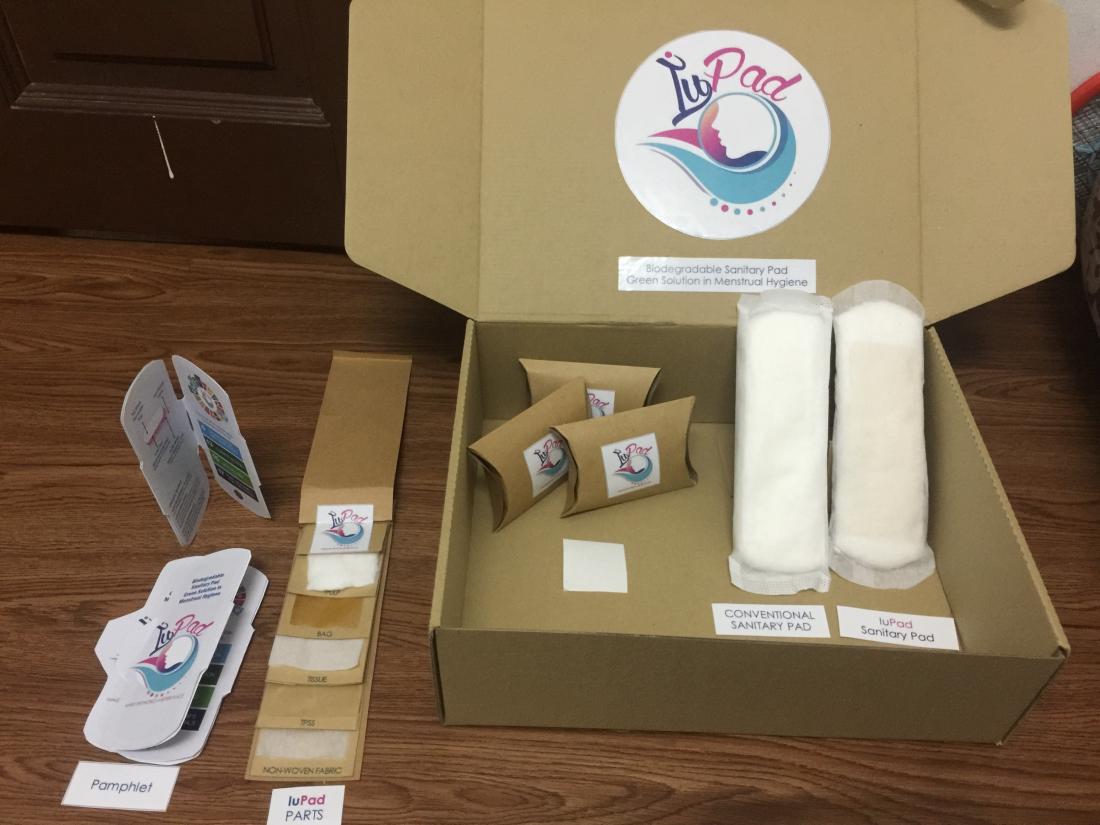Biodegradable sanitary pad in its biodegradable packaging and with also single packaging for the purpose of reviewing by users
Scientists at the International Islamic University Malaysia have fabricated a durable, absorbent, biodegradable sanitary pad using sago, a starch extracted from the spongy centres of tropical palm stems.
Sanitary pads currently on the market can contain up to 90% plastics, each made with an equivalent of four supermarket bags. With the average woman using in excess of 10,000 sanitary pads during her lifetime, this means an incredible amount of plastic waste is released into the environment from this sector alone.
Now, Ir Dr Zuraida Ahmad and colleagues at the International Islamic University Malaysia have developed a biodegradable sanitary pad using Malaysian sago.
The schematic of the fabricated biodegradable sanitary pad
The pad’s absorbent layer is made from a biodegradable super absorbent gel that is has 140% absorbency capacities. This is then attached to a bottom layer, which will adhere to a woman’s underwear, made from a biodegradable, water-resistant thermoplastic composed of sago starch, glycerol, and distilled water. The pad is finally wrapped in non-woven fabric, and sealed together with heat.
Ir. Dr. Zuraida Ahmad
Women can avoid toxic chemicals as this biodegradable pad uses starch as its absorbent base. Starch is more compatible to the skin, and being biodegradable, this product does less damage to the environment.
Further research is still needed to improve the product before it can be commercialized.





